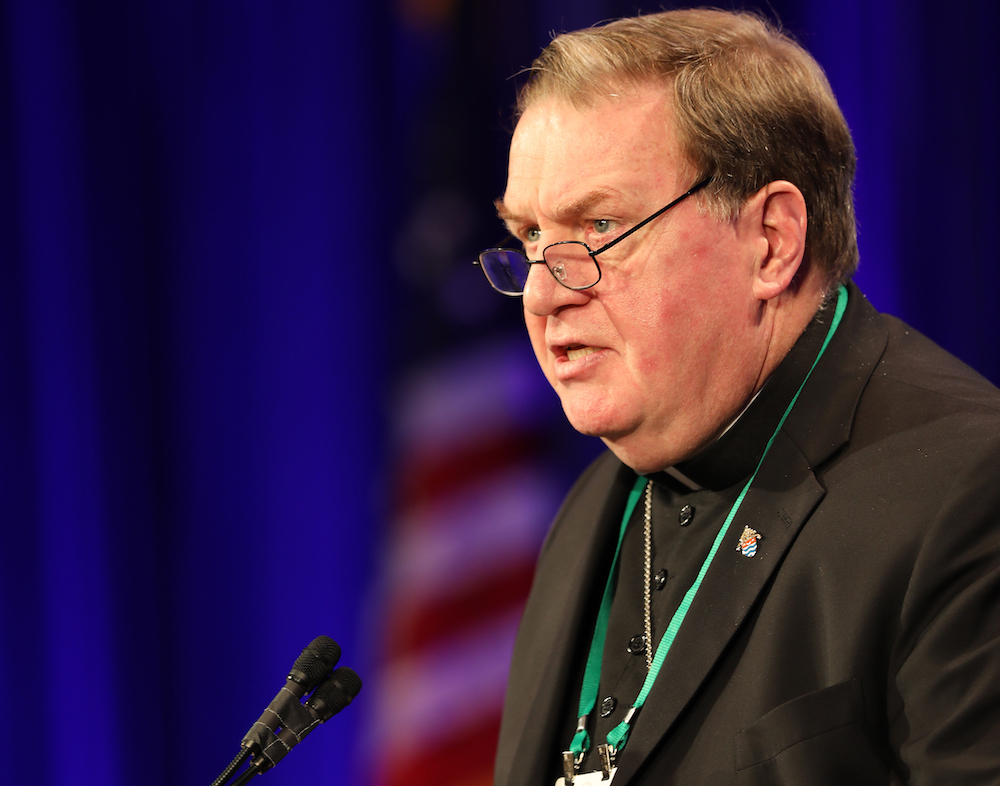As the United States Conference of Catholics Bishops (USCCB) met for the second day of their annual general assembly on Tuesday, the case of former Cardinal Theodore McCarrick emerged as a unifying concern, in a conference otherwise fragmented in its response to the clerical sexual abuse crisis.
USCCB president Cardinal Daniel DiNardo observed on Tuesday that if there’s one issue “nagging” at everyone within the Church, it’s the McCarrick saga. “This is the one that needs to be addressed,” he insisted. “It’s just bad for our people.”
McCarrick, the former archbishop of Washington, who rose through the ranks of the U.S. Church hierarchy and was once viewed as a reformer on issues of abuse, has become the poster child of the U.S. Church’s failed policies on holding bishops accountable.
In June, the archdiocese of New York announced that new allegations against McCarrick dating back to the 1970s had been deemed credible and that the Vatican had removed him from public ministry. Such news prompted other victims to come forward, leading to allegations that McCarrick serially abused seminarians over a span of 50 years, and, at least in one case, a minor.
Pope Francis has since accepted McCarrick’s resignation from the College of Cardinals - a near unprecedented move in the Catholic Church - but the scandal of how one of the most esteemed princes of the U.S. Church could rise through the ranks of leadership for decades given his record of both sexual misconduct and abuse of power has led Catholic laity, priests, and bishops alike to demand answers.
In August, DiNardo announced that he intended to ask Pope Francis to approve a Vatican-led investigation into the matter, yet the following month, after a high-profile USCCB meeting with Francis, it was clear that the pope had rebuffed the request - reportedly noting that if he granted this type of request to the U.S., he’d be forced to do so everywhere.
The pope’s move has left U.S. bishops to take matters into their own hands, and on Tuesday a clearer picture emerged as to the current state of affairs.
During an open forum discussion on the crisis, Cardinal Joseph Tobin of Newark, New Jersey - a diocese still reeling from McCarrick’s two decades in power there - said that there are effectively three investigations taking place.
The first, which is being run on the diocesan level, in coordination with the USCCB, is currently waiting a green light from the New Jersey attorney general, who has appointed a prosecutor with full subpoena power to produce documents to investigate the Catholic Church’s handling of abuse cases.
Tobin said the archdiocese of Newark had engaged an outside private investigative firm that will launch its investigation pending approval from the attorney general.
As Crux has previously reported, four separate investigations will take place in the dioceses in which McCarrick served: Metuchen and Newark, New Jersey; New York; and Washington, D.C.
Tobin said that the Metuchen investigation is also awaiting approval from the attorney general and that local attorney general investigations could likely affect the other two dioceses, as well.
Meanwhile, Tobin said Seton Hall University in South Orange, New Jersey has launched its own investigation, triggered by Title IX - a federal civil right statute involving sexual harassment within educational institutions.
According to the university, they felt compelled to launch the investigation due to a claim from a priest of the diocese of Albany of abuse.
Both Immaculate Conception Seminary School of Theology and the College Seminary at Saint Andrew’s Hall are hosted at the university.
The cardinal has publicly stated his approval of the investigation said the university expects its investigation to be completed before the end of the year.
Finally, Tobin noted that the third investigation is the one occurring in Rome, where several dicasteries “and an attorney that represents them in the United States” is presently collecting all evidence related to McCarrick and is conducting its own investigation.
Tobin said he intends to share the results of the diocesan investigation with the Holy See.
“The story, as you know, doesn’t end here on the East Coast of the United States, but we have to follow what leads us over to the Holy See.”

